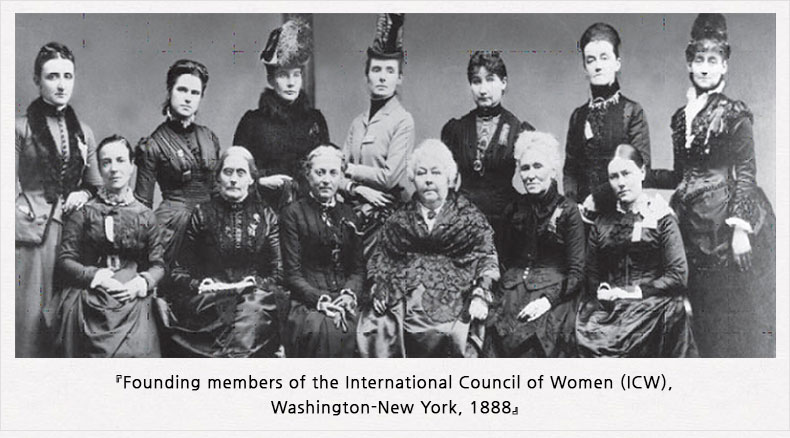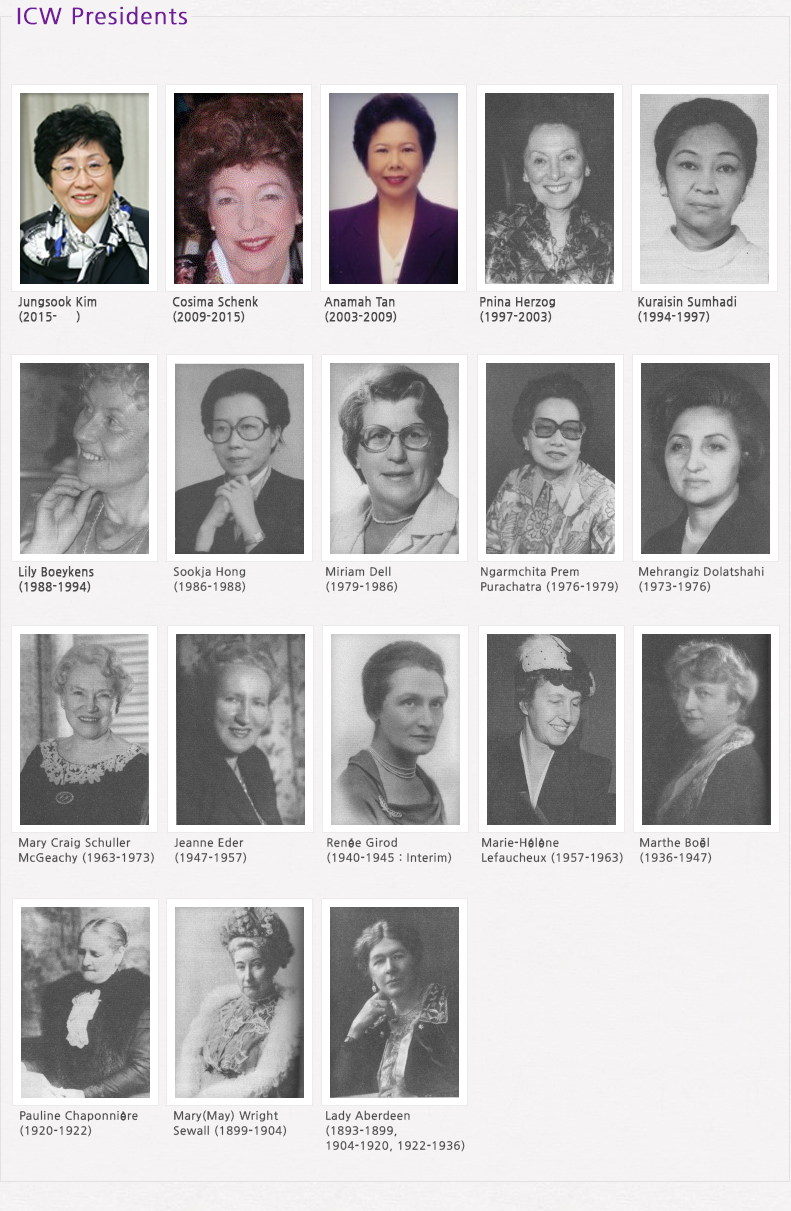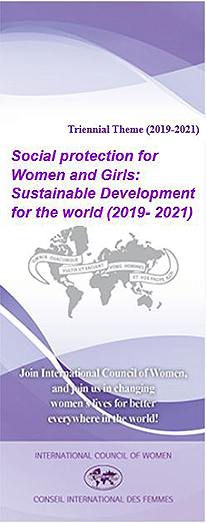

The International Council of Women (ICW) is the first womenвҖҷs organization to work in the international scene at the beginning of the 20th century. Ever since its establishment, the organization has been at the forefront of bringing worldwide attention to the issue of womenвҖҷs rights and leading the battle against gender based social injustice. In that sense, the ultimate goal is the creation of a happier, safer and more egalitarian world for all.
During the second-half of the 19th century, the emergence of industrial societies in Europe and America contributed to the formation of a range of social movements. Among these movements, an awareness of gender based discrimination and injustice in virtually all aspects of society began to emerge. Well educated, insightful, determined women began to press for the formation of specific associations to advocate equal rights which would lead to improved status and better living standards.
ICW, founded in 1888 in Washington D.C., coincided with the establishment of the first national council, the National Committee of the United States. Founding members included Susan B. Anthony, May Wright Sewall, and Frances Willard, among others. Fifty-three womenвҖҷs organizations from nine countries were represented at the first gathering.
ICW aims to bring together womenвҖҷs organizations from all countries. The goal is to promote human rights, equality, peace and womenвҖҷs involvement in all spheres of life through the establishment of an international federation, or umbrella organization, of National Councils. Only one council is admitted for each country.
ICW is integrated into a system of international governmental organizations. Over a period of 128 years, ICW has succeeded in building and maintaining an outstanding reputation of professionalism both within the League of Nations, and subsequently, within the United Nations.
During the time of the League of Nations the principle of equality of men and women was already the primary ICW concern. ICW was on solid ground in 1945 when the United Nations was established and formed the Commission on the Status of Women. Thanks to ICW and other womenвҖҷs NGOs, equality between men and women became a universal value henceforth promoted by the United Nations.
After the establishment of the United Nations, ICW became one of the original nongovernmental organizations in general consultative status with various UN agencies.
Since its birth, ICW has been an apolitical and neutral international organization. Its concept of feminism is a broad commitment to change every aspect of life so as to create a more harmonious and happy life for women.
ICW work is not limited to reducing political, economic and civil inequities, but encompasses a moralization of the world so that it can be transformed into a good place for all women and children to live. ICW firmly believes that there is an ideal situation of well-being, happiness and justice that is common to all women, irrespective of social class, ethnicity or religion.
In the beginning, the feminists of ICW saw their international contacts as a means of achieving understanding between nations. The global network of ICW is a potent symbol of intercultural dialogue and cooperation, certainly a prerequisite for international peace and security.
ICW sees emancipation of women and the struggle for equality as a matter relevant to all women. Women in all nations can be victims of violence, discrimination, trafficking and poverty.
ICW played a major role along with other womenвҖҷs NGOs in the UNвҖҷs 1975 proclamation of the International WomenвҖҷs Year. Likewise, ICW was active in the World Conferences on Women in Mexico City (1975), Copenhagen (1980), Nairobi (1985), and Beijing (1995). It has always been at the forefront in the fight for establishing gender equality as an international norm. Working together with women from throughout the world, it has represented womenвҖҷs views at national, regional and international levels, mobilized world public opinion, and implemented MDGs and SDGs.
ICW continues to work closely with the United Nations on issues of health, welfare, peace, equality, education, environment, migration, violence, discrimination, trafficking, poverty and the rights of women, children, refugees and minorities.
Today, the challenge is still going on. The 2015 ICW General Assembly in Izmir, Turkey adopted вҖңTransforming Society through WomenвҖҷs EmpowermentвҖқ as the triennial theme (2015-2018). As such, national councils of ICW have undertaken various projects to empower women in many ways. Its future task is to share and promote the values of womenвҖҷs empowerment with women in other parts of the world where they still suffer from social injustices.





